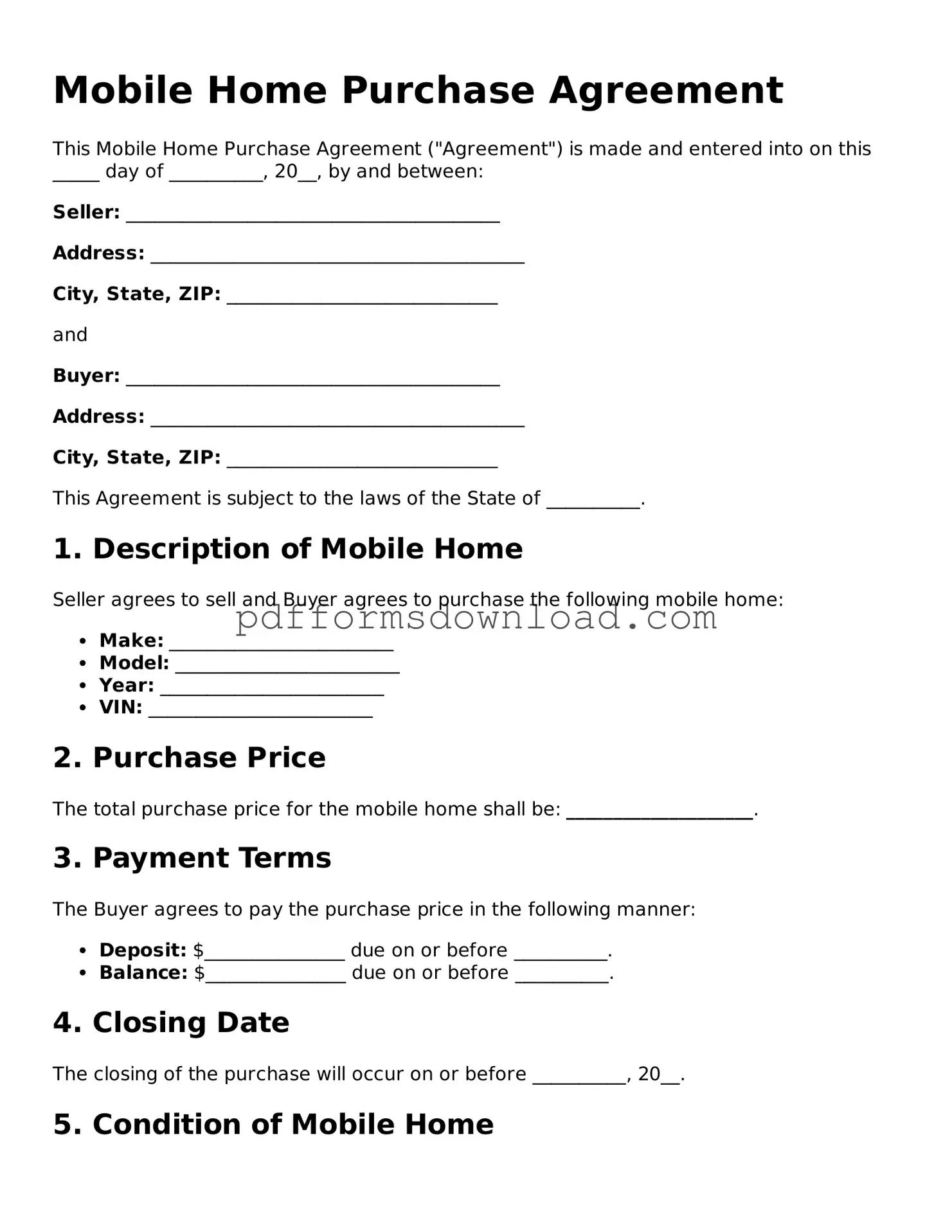What is a Mobile Home Purchase Agreement?
A Mobile Home Purchase Agreement is a legal document that outlines the terms and conditions under which a mobile home is bought and sold. It includes details such as the purchase price, payment terms, and the responsibilities of both the buyer and the seller. This agreement serves to protect the interests of both parties involved in the transaction.
Why is it important to have a Mobile Home Purchase Agreement?
Having a Mobile Home Purchase Agreement is crucial because it provides clarity and security for both the buyer and the seller. It outlines the expectations and obligations of each party, reducing the risk of misunderstandings or disputes. This document can also serve as evidence in case of legal issues arising from the sale.
What information should be included in the agreement?
The agreement should include essential details such as the names and contact information of both the buyer and seller, the description of the mobile home, the purchase price, payment terms, and any contingencies. Additionally, it should specify the closing date and any warranties or disclosures related to the mobile home.
Can the agreement be modified after it is signed?
Yes, the Mobile Home Purchase Agreement can be modified, but both parties must agree to any changes. It is advisable to document any modifications in writing and have both parties sign the updated agreement to ensure that all changes are legally binding.
What happens if one party does not fulfill their obligations?
If one party fails to meet their obligations as outlined in the agreement, the other party may have the right to seek legal remedies. This could include pursuing damages or specific performance, which means asking the court to enforce the terms of the agreement. It is important to consult with a legal professional for guidance in such situations.
Is it necessary to have a lawyer review the agreement?
While it is not legally required to have a lawyer review the Mobile Home Purchase Agreement, it is highly recommended. A legal professional can ensure that the document is comprehensive, complies with state laws, and adequately protects your interests. Their expertise can help prevent potential issues down the line.
What are common contingencies included in the agreement?
Common contingencies in a Mobile Home Purchase Agreement may include financing contingencies, inspections, and the sale of the buyer's current home. These contingencies allow the buyer to back out of the agreement without penalty if certain conditions are not met, providing additional security during the purchasing process.
How can disputes be resolved if they arise?
If disputes arise regarding the Mobile Home Purchase Agreement, the parties may first attempt to resolve the issue through direct communication. If that is unsuccessful, mediation or arbitration may be pursued as alternative dispute resolution methods. If necessary, legal action can be taken, but this should generally be considered a last resort.

